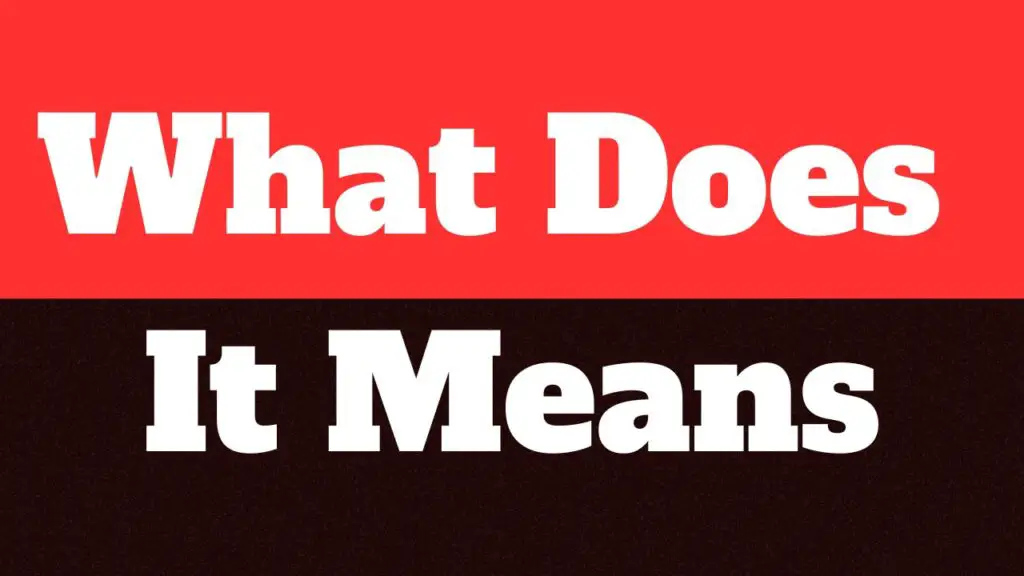Mashallah Meaning | Profound Expression | Significance | 2023
Discover the profound meaning and universal significance behind this beautiful Arabic expression

Mashallah Meaning
Mashallah Meaning is “God has willed it”.’Mashallah’ is an Arabic phrase used to express gratitude, admiration, and acknowledgment of God’s blessings. It signifies that the beauty or goodness being observed is a result of God’s will.

- Is Ons Jabeur Muslim? | Tennis Player | 2023
- Muslim Inventions Since 610 A.D to 2023
- Was Jesus Muslim?
- Muhammad Meaning | Islamic Name | The Messenger of Islam | 2023
- Glossary of Islamic Terms | Exploring Fundamental Terms of Islam | 2023
Introduction of Mashallah Meaning
In the world of linguistics, certain words and phrases hold a unique significance due to their cultural, religious, or historical importance. One such phrase that carries deep meaning and resonance in the Arabic-speaking world and among Muslims worldwide is “Mashallah.” Comprising just two simple words, “Mashallah” encapsulates a profound expression of gratitude, awe, and protection, making it a rich linguistic gem deserving exploration.
The Linguistic Foundation of Mashallah
Before delving into the deeper meaning and significance of “Mashallah,” it is essential to understand its linguistic foundation. “Mashallah” is an Arabic phrase that can be transliterated into English in various ways, including “Masha’Allah,” “Masha Allah,” or “Ma sha’ Allah.” The phrase is a combination of two words:
Phrase Mashallah Meaning
- Masha’ (مَا شَاءَ): This word originate from the Arabic root “sh-w-a,” which means “to will” or “to wish.” In the context of “Mashallah,” it carries the sense of “whatever God wills” or “what God wishes.”
- Allah (الله): This is the Arabic word for God, the supreme deity in Islam and the monotheistic Abrahamic faith.
When combined, “Mashallah” can be roughly translated as “What God has willed” or “What God wishes.” However, its significance goes far beyond this literal translation.
What is ‘Mashallah’ meaning?
Mashallah meaning is “God has willed it“.’Mashallah’ is an Arabic phrase used to express gratitude, admiration, and acknowledgment of God’s blessings. It signifies that the beauty or goodness being observed is a result of God’s will.
Is ‘Mashallah’ only used by Muslims?
While ‘Mashallah’ has Islamic origins, it is used by Muslims worldwide and even by individuals of various cultural backgrounds to express admiration or gratitude.
What is the significance of ‘Mashallah’ in Islamic culture?
In Islamic culture, ‘Mashallah’ reminds individuals of God’s sovereignty over all aspects of life and serves as protection against the evil eye, a belief that excessive admiration can bring harm.
How is ‘Mashallah’ used in daily life?
People say ‘Mashallah’ when they see something beautiful, impressive, or positive to acknowledge God’s role in it. It’s also used to protect against envy by invoking God’s name.
Are there variations of ‘Mashallah’ in different cultures?
Yes, in various cultures, similar phrases are used for protection against the evil eye, often combined with ‘Mashallah.’ For instance, in Turkey, “Nazar değmesin” is commonly used.
The Expression of Gratitude and Awe
“Mashallah” is often used as a spontaneous expression of gratitude, admiration, or awe when someone observes something beautiful, impressive, or positive. It is an acknowledgment that the beauty or goodness one has witnessed is a result of God’s divine will and blessings. By saying “Mashallah,” individuals are reminded of their belief in the ultimate power and sovereignty of God in all aspects of life.
For example, if someone sees a beautiful sunset, a healthy child, or an accomplishment by a friend, they might say “Mashallah” to convey that the beauty or success is a gift from God. This expression of gratitude serves as a humble acknowledgment that human achievements and the wonders of the world are ultimately controlled by a higher power.
Protection from the Evil Eye
“Mashallah” also carries a protective aspect. In many cultures, including various Muslim communities, it is believed that excessive admiration or envy from others can bring about the evil eye, which may harm the person or object being admired. To counteract this potential harm, people say “Mashallah” as a form of protection.
By invoking God’s name in this way, individuals seek divine protection for themselves, their loved ones, and their possessions. It serves as a reminder that all good things come from God and that acknowledging this divine origin can shield them from negative energies.
Cultural Variations and Usage
While “Mashallah” is primarily an Arabic phrase, it has transcended linguistic and cultural boundaries due to its universal message of gratitude and protection. Muslims around the world, regardless of their native language, often use this phrase as a part of their daily expressions.
In some cultures, “Mashallah” may be combined with other phrases or gestures to enhance its protective effect. For instance, in Turkey, it is common to say “Mashallah, gözünüzden ırak olsun,” which translates to “May it stay away from your eyes,” emphasizing the protection from the evil eye.
Mashallah in Islamic Art and Calligraphy
The beauty and significance of “Mashallah” have also been celebrated in Islamic art and calligraphy. Artists and calligraphers often incorporate this phrase into their work, creating intricate designs that showcase the elegance and power of the Arabic script.
The use of “Mashallah” in art serves to remind viewers of the divine blessings and the need for gratitude in all aspects of life. It reinforces the idea that true beauty and creativity ultimately derive from the Creator.
Conclusion of Mashallah Meaning
In conclusion, “Mashallah” is much more than a mere phrase; it is a profound expression of gratitude, awe, and protection deeply rooted in the Islamic faith and Arabic culture. It reminds individuals of their belief in God’s sovereignty over all aspects of life and serves as a shield against the potential harm of the evil eye. This two-word phrase encapsulates a rich tapestry of meanings and emotions, making it a linguistic gem that continues to resonate with people around the world, transcending linguistic and cultural boundaries.
Is there a specific way to write or say ‘Mashallah’ in Arabic script?
In Arabic script, ‘Mashallah’ is written as “مَا شَاءَ ٱللّٰهُ.” The pronunciation may vary slightly based on regional accents.
Can ‘Mashallah’ be used for non-physical blessings, like achievements or good news?
Yes, ‘Mashallah’ can be used to acknowledge any positive development, including personal achievements, good news, or the success of others.
Is it appropriate to use ‘Mashallah’ in non-religious contexts?
Yes, ‘Mashallah’ is often used in everyday conversation, even in secular contexts, to express admiration and gratitude.
Are there any alternative phrases with similar meanings?
Yes, phrases like “Subhanallah” (glory be to God), “Alhamdulillah” (praise be to God), and “Insha’Allah” (God willing) also convey similar sentiments.
Can ‘Mashallah’ be used sarcastically or negatively?
No, ‘Mashallah’ is meant to convey positive sentiments and gratitude. Using it sarcastically or negatively would be culturally inappropriate.





